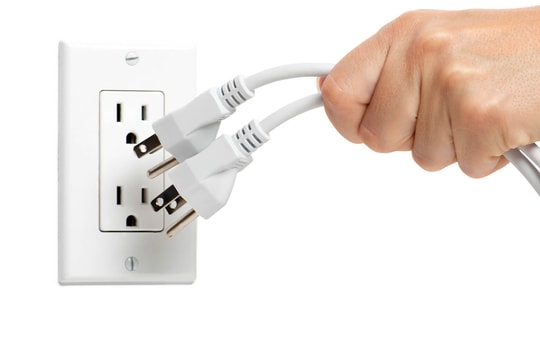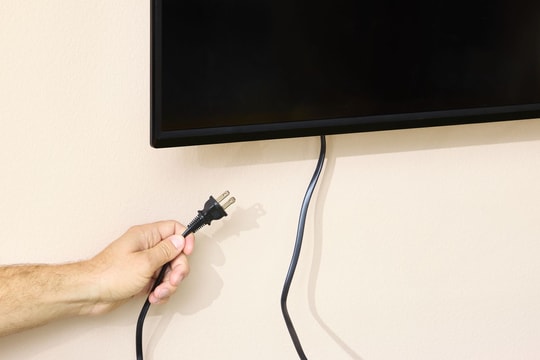Which appliances should be unplugged before a storm?
When a storm hits, electrical shocks from lightning strikes or sudden power surges can cause serious damage to electronic equipment in the home, or even spark dangerous fires if users do not promptly shut off the power properly.
When a hurricane is brewing offshore, most people focus on stocking up on food, water, or securing outdoor items to minimize risk.
However, an important preparation step that is often overlooked is unplugging electronic devices. In severe weather conditions, sudden surges of voltage due to electrical short circuits or lightning strikes can cause serious damage or even fire or explosion to expensive devices such as TVs, computers, and refrigerators.
.jpg)
Just a simple action like turning off the power at the right time can help you avoid losses up to tens of millions of dong and protect the safety of the whole family. Below is a list of devices that should be unplugged before the storm hits, along with important notes about the risk of power outages in extreme weather conditions.
Remember, never unplug during a storm. Take steps to protect your equipment several hours before the storm hits.
Devices to Unplug Before a Storm Arrives
According to Safe Electricity, you don’t need to be struck directly by lightning to cause problems with your home’s electrical equipment. The voltage from lightning traveling through power lines, telecommunications cables, and even plumbing systems is enough to cause serious damage.
“Always turn off and unplug electronic devices before a storm approaches, never once it has started,” warns the Safe Electricity website. “Don’t bet your devices on surge protectors, unplugging is the real protection.”
According to electrical safety experts, it is not feasible to disconnect all electronic devices in every situation, especially large or fixed devices. However, by planning ahead and identifying the most vulnerable devices, you can significantly reduce the risk of damage, both to property and disruption after a storm.
Devices that should be prioritized for unplugging include: Coffee makers; Desktop and laptop computers; Game consoles; Hair tools (dryers, straighteners, curling irons); Microwaves; Toasters; Televisions; Air fryers; Smart home devices such as speakers, cameras, Wi-Fi routers.
These devices often have delicate circuitry that is susceptible to damage if there is a voltage surge.
Power surge: A silent danger in the storm
Power surges occur when the flow of electricity exceeds safe limits, disrupting and sometimes destroying circuits in devices. A lightning strike near your home can cause electricity to flow back into your home’s electrical system, damaging everything from small appliances to large systems like refrigerators, washing machines, and even central air conditioning systems.
Surge damage can range from minor to severe, depending on its source and intensity. A surge from lightning can fry a circuit board or render a device beyond repair.
So unplugging is not only a simple precaution, it's the first and most effective line of defense against natural disasters.
Other hurricane safety tips: It's not just about unplugging
Disconnecting electronic devices is an important step in storm preparation, but it is not enough to ensure absolute safety. According to Safe Electricity, people should pay attention to a number of other protective measures to minimize the risk of accidents and damage:
Turn off the air conditioning system:During storms, power surges can cause damage to the compressor, the most expensive part of your air conditioning system. Turning it off early not only protects your hardware, but also saves you from costly repairs that can cost tens of millions of dollars.
Avoid contact with water sources:During a thunderstorm, water and plumbing systems become ideal conductors of electricity. Therefore, you should stay away from sinks, faucets, bathtubs, or any areas with plumbing. Lightning can travel through metal pipes and pose a serious danger to anyone in contact with water.
No washing dishes, no bathing, no using the washing machine or dryer:These appliances are both connected to the plumbing system and have an electrical connection, making them a dangerous “bridge” for lightning currents to travel into the home. In particular, dryers can conduct electricity through the metal vent system to the outside, increasing the risk of electric shock if an abnormal current is transmitted.
Following these safety guidelines will not only protect your property, but it is also essential to keeping your family safe during severe weather conditions. Once a thunderstorm has started, make sure everyone stays indoors, away from windows, electrical appliances, and water sources until the storm has passed.





